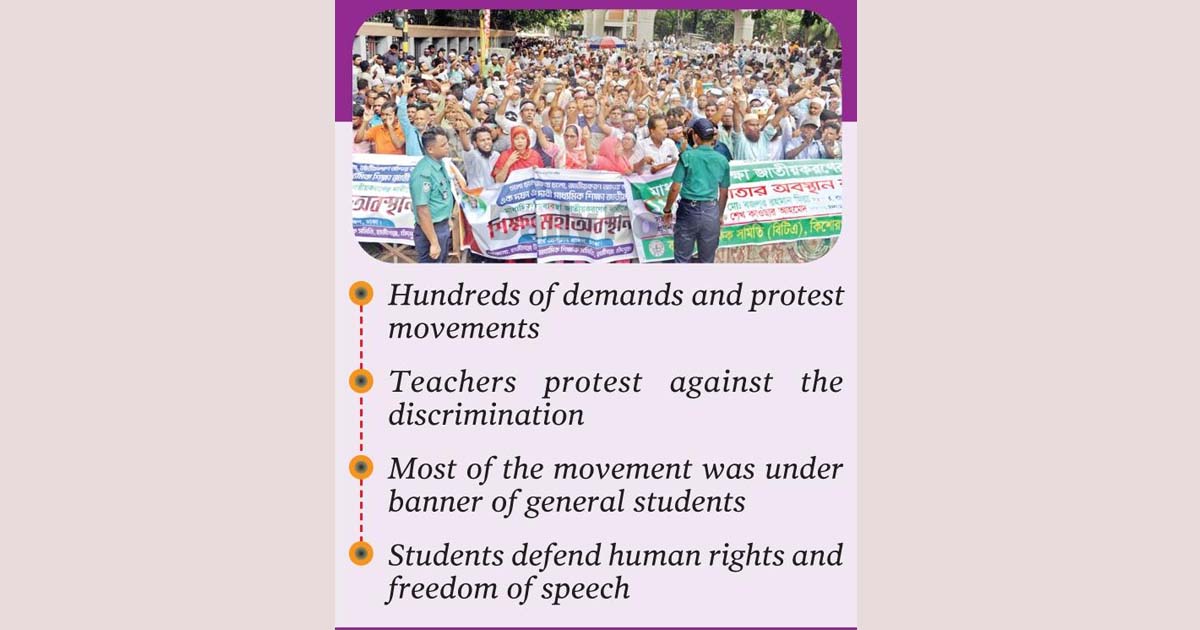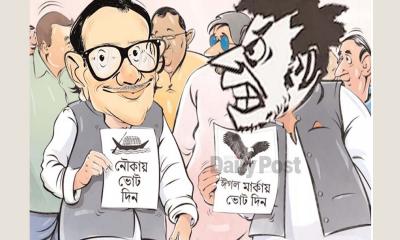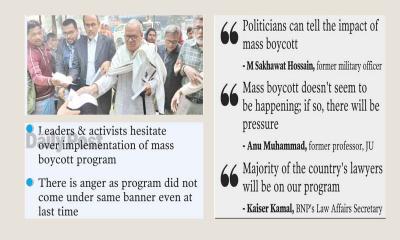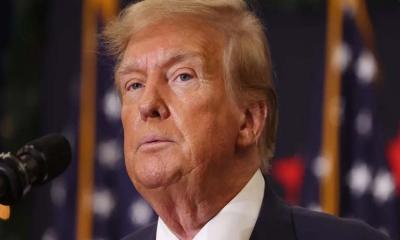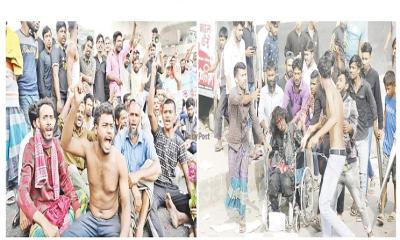- Hundreds of demands and protest movements
- Teachers protest against the discrimination
- Most of the movement was under banner of general students
- Students defend human rights and freedom of speech
- Opposition student organizations busy in political programs
With the ending of the year 2023, many people are calculating the equation of the last year where mostly rise question is how were the teachers and students?
The last year of every government is called an election year. At this time, there was a rush to make various demands. Some of these movements failed and some of was seen the light of success. At this time, the opposition student organizations were vocal. They are active in criticizing and protesting the government's actions. The year 2023 was no exception to the general reality. In addition, human rights and freedom of speech are violated in different countries of the world every year. Students protested against these incidents. This year was no exception. How was the 2023 protest and demand movement? Let’s take a look to the most discussed incidents of the 2023.
It was known that teachers and students have protested and demanded about 50 issues, big and small in this year. Among them, anti-discrimination and demand movements have gathered more. However, most of the demands and protests of the students have been under the banner of general students. The demonstrations are: nationalization of secondary education and Ebtedayee madrasas, students' movement for increasing the age limit in jobs, movement of education cadre officials, movement against curriculum of teachers and guardians, movement against irregularities in Non-Government Teachers Registration and Certification Authority (NTRCA) and primary jobs, movement of MATS students, HSC examination, and demand for 50 thousand honorariums for intern doctors. Anti-government student organizations were more vocal in political programs like hartal-blockade. Teachers and students have taken out protest marches in universities and educational institutions against the Palestinian issue.
Movement for Nationalization of Secondary Education:
Non-government teachers have been demonstrating for 23 consecutive days in front of the National Press Club demanding nationalization of secondary education in the country. The movement took place from July 11 to August 2. Teachers from all over the country came to the movement under the leadership of Bangladesh Teachers Association. The active presence of teachers in the movement created a lot of discussion across the country. As a result, MPO teachers like government teachers also get 5 percent incentives. However, the nationalization of teachers has not been implemented. Still, teacher leaders believe it will have a good impact in the future. If they can make a big movement for this demand, they will succeed.
Anti-Curriculum Movement:
Half a year later, an anti-curriculum movement developed in the country. They are slowly agitating about this. Over the past two months, he has launched an anti-curriculum movement through social media and campaigns among parents in schools. The education minister has pushed a new ghee to the parents' movement. At a recent press conference, he referred to the protesters as "coaching businessmen". Parents are trying to protest a big movement. They allege that the government is saying such things to question their logical movement. In a written statement, they demanded that such statements be withdrawn.
Movement for nationalization of Ebtedayee education:
Independent Ebtedayee Madrasa Teachers' Unity Alliance has launched various movements throughout the year demanding eight-point demand, including nationalization of independent Ebtedayee Madrasas like primary schools. Every year before the election, the movement of Ebtedayee teachers is active. Yet their differences have not yet disappeared. Sometimes, the primary level teachers of madrasa education in the country did not get anything in reality despite assurances from government officials.
Movement of BCS General Education Cadre Officers:
The teachers were protesting at the end of September and mid-October for various demands, including cadre discrimination and promotion problems. They also observed work abstention in various educational institutions and offices and courts. The allegations of the BCS General Education Association are, to reduce promotion discrimination by creating supernumerary posts in all cadres, upgrading the salary grade of professors to the third level. Separate recruitment rules have been made for the scheduled posts of the education cadre Department of Primary Education, Madrasa Education Department and Government Alia Madrasa.
Intern Doctors' Movement:
Private resident and non-resident postgraduates have again protested demanding a monthly allowance of Tk 50,000 with a notification. In the middle of the year, the Directorate of Health Education informed the Prime Minister about the increase of Tk 5,000. But the protesting doctors were not satisfied with the money.
Educational institutions protest on human rights issues:
On October 7, most of the country's universities protested against Israel's attack on Palestine. Teachers and students of schools and madrasas also participated in the protest. Islamic organizations brought out a procession in front of Baitul Mukarram National Mosque in Dhaka.
Student organizations opposed to political programs:
One of the functions of the student body was very little vocal in favor of student rights. They are seen busier with party strikes and blockade programs.
ARS


